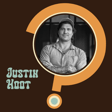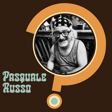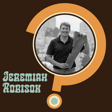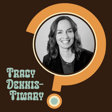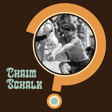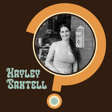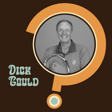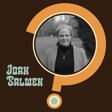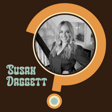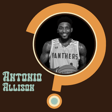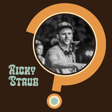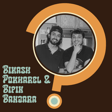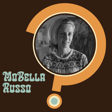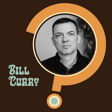Become a Creator today!Start creating today - Share your story with the world!
Start for free
00:00:00
00:00:01

Episode 24 - Rob Bell
Rob Bell is a bestselling author (Love Wins, Velvet Elvis), a podcaster (The Robcast), a performer, and speaker. Rob came on the show to talk about his new book, "Where'd You Park Your Spaceship?", and how the experience of writing it was completely different from his other books. He shares about growing up on a hobby farm in Michigan, and how creativity helped him discover himself. We talk about the importance of learning painful lessons, and how real happiness is found in the process, not the result.
You can find Rob's book, "Where'd You Park Your Spaceship?" at robbell.com
Transcript
Introduction and Anticipation
00:00:11
Speaker
Hello and welcome to What's Next. I'm Joel and this is my show.
00:00:16
Speaker
I don't know if you've ever had a moment that was so surreal, you had to wonder if it was actually happening, but this week's conversation was a moment like that for me. Rob Bell came on my show. Rob is a bestselling author, he's a speaker, a performer, a musician, and he has a podcast called The Robcast. And for about 20 years now, Rob has had a pretty big impact on me from afar. I've been listening to his ideas and reading his books since
00:00:46
Speaker
Since probably the early 2000s and he's also had an influence on society more broadly in 2011 he was named one of Time magazine's most influential people that year and You know, I guess it's just what happens when you know about someone but you don't know them personally you sort of create a character of who they are in your mind and
00:01:09
Speaker
And I was nervous to meet that character in my mind. The character I had created in my mind. Mostly I just didn't want to waste his time and I didn't want to make myself look like an idiot. Which is the usual shit that goes on in my head. The stuff I'm trying to work out through doing this podcast.
Technical Hiccups and Honest Conversations
00:01:28
Speaker
But the guy that showed up on the screen was just a normal person, patient as I had technical trouble getting my headphones to work and he was kind and honest and forthcoming and he was candid. We just had a really wonderful conversation.
00:01:38
Speaker
But...
00:01:44
Speaker
And even though having good conversations happens all the time on here, I still get nervous about it because I want it to happen, but it's a mystery to me. As much as I plan and prepare, there's a moment during a conversation where I can feel it starting to become something else, where it's starting to become what it's going to be or what it's meant to be. I finally can see that and I can get out of the way and let it happen. And despite my worrying and anxiety,
00:02:13
Speaker
That certainly happened with Rob.
Rob Bell's New Book and Creative Process
00:02:15
Speaker
He came on to discuss his new book, Where'd You Park Your Spaceship? And we talked about his life and identity and creative process as well. But as nervous as I was, I settled in after a few minutes and I really enjoyed speaking with him. So please enjoy my conversation with Rob Bell.
00:02:41
Speaker
I'm in the St. Louis area. Fantastic. Yeah, I'm Canadian. I moved down to the Chicago area when my wife and I got married. And then my wife's doing grad school down here in St. Louis right now. So our family moved down here for her to wrap that up and she's graduating in a couple months.
Life Transitions and Podcasting
00:03:02
Speaker
When you said you were Canadian living in St. Louis, I was going to say, what's her name? Do you know a Canadian in St. Louis? No, just what's her name? Meaning, who did you fall in love with? What's their name? Yeah, she's almost finished with the program. There's a lot of really great people down here and it's a different phase for our family. So we've got two young kids and it's a whole new thing to figure out. Yeah.
00:03:30
Speaker
Rob, thanks for coming on the podcast. My pleasure. It's just a little surreal for me. I'll fanboy a little bit first and then we can move on to the more serious stuff. But I first heard about you through your book, Velvet Elvis, years ago.
00:03:49
Speaker
I've since read a lot of your books, but I've listened to a lot of your talks over the years, to your podcast. To have this chance to sit down and talk with you has got to blow in my mind right now. Thanks for coming on. It's blowing my mind too that you read a book that I wrote 20 years ago.
00:04:09
Speaker
Velvet Elvis, that's like so long ago. Oh my goodness. Amazing. So do you do a lot of podcasts? Are you typically a guest? I know you have your own. I do the Robcast. I haven't done other people's for a long time until
00:04:25
Speaker
I wrote this book and it was such a different, it was such a new experience of creation and it was like, oh wait, I would really enjoy talking about this. I would love to see what people thought of these characters.
Personal Experiences and Inspirations
00:04:43
Speaker
Because I had had my own experience with the story, so it was almost like a
00:04:47
Speaker
I wanted to have a book club about a book because it had been so meaningful to me. It just happens that I also wrote it. But it was a very like, otherwise the other books, it was like, put the book out or other projects, do the interviews about it and then onto the next one. But this one was like, it was like an invitation to just be with it.
00:05:09
Speaker
Yeah, it was the first thing I'd ever made that I was like, I would love to talk about this. I could just talk about this forever. I spent six months of doing interviews and I just love it. What was different about the process of writing this one from the other ones that made it such a more personal experience for you?
00:05:26
Speaker
In some ways, it was, well, like spiritual teacher energy is a very particular kind of energy because you're explaining things. So the other books, in many ways, the other books are like idea A, idea B, idea C, you know, and they like the one idea has to flow out of the other or else you, the reader, Joel, are like, what the heck? What? I'm lost. What is this? What is this? And there was something about coming to the end of that.
00:05:56
Speaker
So it was like a summer of 2021. I had had this sense that something was ending. And sometimes you don't even know what's ending, you just know something's ending. And it was like, I had been trying to write a, what do you call it, like a normal Ravel book. And it was just, I was like so bored. I was like, ugh.
00:06:15
Speaker
Then I fell surfing and bad. I got held under for three, just pounded for three waves. I had bruises all over me and I'd sliced open my chest. I was like a wreck. I was literally just sat in this chair for a couple of days because I was like, just hurt too much. It's like getting in a car accident or something.
00:06:37
Speaker
I just had this, it was a very strong sense, like something is ending. It's okay, you don't have to write that book. I was like, I don't? It's like, yeah, you don't have to do that. You did all that. If somebody wants to hear you talk about that, there's probably 10 things on the internet about you talking about that. It was like a very, like a true, a chapter is ending. And it wasn't long after that that
00:06:59
Speaker
In the middle of the night like halfway between fast asleep and wide awake this this image of this guy asking this guy Where'd you park your spaceship? It was like so clear and I immediately was like, how does this guy feel about this question? It was like he does not like this question. That was the seed of the idea
00:07:15
Speaker
Mm-hmm. Mm-hmm. Middle of the night. And I was like, why does he not like this question? And then I was like, what's his name? Jill Tudd. What's the other guy's name? He grew bears. And I remember there was a notepad in the clothes closet where, like, don't forget the bread, that kind of notepad, stuff you got to do. And I remember I started writing down, like, this scene, like, and then why are there spaceships? Well, they're not on the Earth. Where are they? The planet Fertis. OK. Why? What happened to the Earth? Well,
00:07:43
Speaker
And over the next, I don't know, days, weeks, that pad like soon became like so many pages of story. And then I had to like give myself permission because it's, I'd written a couple of plays in one other novel, but it always felt like it always felt like play. And then I had to go back to work. Hmm.
00:08:03
Speaker
But this was like, no, just trust it and follow it. Yeah. I listened to it. I have a hard time with like the written word, like staying focused and sticking with it for the long term. So I do a lot of my book consumption through listening and to hear you
00:08:20
Speaker
read it was a pretty cool experience. It was very informal in a way I wasn't expecting at first, but you kind of get it. It feels very natural really quickly. It's like we're just sitting on the couch next to you as you're reading it. Very unproduced in that way. But there's moments where you're
00:08:40
Speaker
getting quite emotional while reading it. It was stirring something inside of you, like the scene when Hien brings Bjorn's son back. That's the scene when you said that's the scene I was thinking of. It wrecked me when I wrote it. It wrecked me when you edit a book.
00:08:59
Speaker
You read it over and over again, it just wrecked me. There are multiple scenes that just get me every time. And that's the very mysterious thing about it, a story. You kind of know, but you don't really, we don't really know why certain stories grab us. So they speak to something deeper within us than just our normal mental processing of things. Yeah, and that was important. And I had that question.
00:09:28
Speaker
when I was recording, I was like, wait, should I hit stop and collect myself and then keep recording? That feels weirder than if I just, no, this is what it would be like if I was reading it to you. I would get, just have it be like you're reading it to a friend and this is what happens happens and just keep it all in.
00:09:46
Speaker
Yeah, that's cool. I would really love to talk more specifically about the book, but even part of what you're saying now, you've obviously been on a journey to get to the point of being able to write this book, and I'd love to talk a little bit about
00:10:04
Speaker
kind of go back and talk a little bit about your story to how you got to this point of writing this book.
Exploring Faith and Spirituality
00:10:11
Speaker
So just for context, just to give you a little context about me as I'm asking questions and so it's not coming out of the blue. So I grew up, like I already said, small town Canada. My dad was a pastor at an evangelical church, you know, so I grew up kind of in that world. But you were kind of the gateway
00:10:32
Speaker
to like thinking about faith and spiritual things differently than what was kind of going on around me, you know, to contextualize things that were previously kind of meaningless to me or didn't really make sense. And suddenly they made sense and were exciting in different ways.
00:10:50
Speaker
So there's been a lot of years where you've been a part of my life. But I just love to go back to the beginning of your story, like where'd you grow up and what your parents do and all that. I grew up in the middle of Michigan. From when I was five to when I was 14, my dad had bought like a 10 acre hobby farm. So there's like a tractor. We'd like to go to soccer practice.
00:11:16
Speaker
And it was surrounded by subdivisions. So it was like the suburbs, but we had a tractor and a couple of barns and we'd go to soccer practice and then we'd bail hay. My dad was a judge. Yeah, my parents' education was very important to my parents and we went to church. That was very important to my parents. And yeah, there was lots of love and there were
00:11:39
Speaker
there was at one point tons of cats on the farm and there was my sister and I making things. Then my brother came along later and yeah, yeah. And we had a place in the upper peninsula, almost to the Canadian border where we went in the summer, like a little shed, a cabin. And I was fascinated with the human experience. I can remember my parents would have dinner parties and they had a bunch of people over and I would
00:12:03
Speaker
sit around the table and watch the adults, the kids would run off. But I remember watching the adults and then afterwards, like we'd be, you know, doing the dishes and I'd be asking my dad, like, why does that guy treat his wife like that? And why does that lady always tell stories about? I found all of that, all this, the dynamic. And what are we, what are we all doing here? What is this? Like, what is this experience? And where are these?
00:12:30
Speaker
almost that sensation of what is this thing that's been created that I'm supposed to go to this school and get good grades and so I can do what so I can come someday live in a neighborhood like what and in the tradition I came from that that was like yeah you got all those big questions that was all those are all questions of whatever religion but I would we would go to church and I would just be like this is the big stuff because this is like
00:12:59
Speaker
pretty boring. And then in college I discovered I was in a band and that was like the most exciting thing ever. And there was something about, I was the lead singer, writing lyrics and then there'd be a mosh pit and there'd be people in the back of the room and it was like a communal tribal happening and everybody singing
00:13:24
Speaker
The lyrics and dancing just so hot and sweaty and cramped and like there was something about the act of creating something and sharing it with people and then the thing happening in the room that was like.
00:13:37
Speaker
It was the first time I felt like, oh, there's maybe a place for me. And then the band broke up, because that's what college bands do often. And I got this idea that I would go to be a pastor, because it was like in the tradition, in the world I came from, that's, if you're interested in these things, that's what UN did. And I had discovered the sermon somewhere in there as an art form. So I was like, I'm going to go, I'm going to reclaim
00:14:08
Speaker
I honestly at the time kind of thought like the sermon is kind of like punk rock. It's like dangerous. It's like political and economic. And it's about like, it's like a group therapy meets a recovery meeting meets guerrilla theater meets performance art. Yeah. So that's what I did. And then I got a job at a church and
00:14:27
Speaker
Then just wait for it. Well, so so you felt as a kid like you didn't really belong there like you didn't really know what your your place was new I honestly was like No, I distinctly remember in high school being like I didn't really think I was good at much. So like I have to be good at something for them to pay you so that you can make money. I mean I had very like I
00:14:51
Speaker
what would I ever be good enough at? I just need to remember that. Just being like, and then you have to go every day and ugh. Yeah, so it wasn't even a question of identity. It was like just survival. What is this? What is this whole thing? I understand how this works. And there was always kids who were better students and better athletes and better musicians and more popular and they're always the cool kids. So just all the like,
00:15:21
Speaker
Yeah, all those feels. Did you have someone you were looking up to or somebody that was helping guide you at that time? When I was 13, my aunt, for some reason to this day, I don't understand, gave me the police.
00:15:40
Speaker
a British band and they had an album called Synchronicity. And I remember listening to that record and being like, it was like a portal. It's like, what, King of Pain? What, wait, what? It was just so different. And then when I was
00:15:58
Speaker
16 I saw a U2 on the Joshua Tree Tour. And there was something about these people who they taught themselves to play their instruments and then they had created a world. They didn't follow any, it was the opposite of everything I had been taught is how it works. And that was seismic. It was so disruptive and inspiring to me that these people from Dublin
00:16:28
Speaker
It went so beyond the music to me. It went to, wait, you can like teach yourself something and commit to something and just create a whole thing out of scratch just from nothing. So there were very disruptive moments when this very, very strong set world that I lived in that was like, this is how it works.
00:16:56
Speaker
I would encounter something that would be like, yeah, or maybe it doesn't. Maybe it also works other ways. Yeah. And this other way is a little funner and more beautiful. Yeah. And I would say that that just kept happening.
00:17:13
Speaker
I can relate a lot to feeling that way, not having a place. And for me, a lot of that feeling came from having an older brother and other people around me who were just completely swallowed up my identity. I could not compare to them in intellect or in athletic ability. I have no way to be somebody in this situation, in this moment.
00:17:37
Speaker
Yeah. Because you have a very specific skill of communicating. I must have been so intoxicating when you discovered that. Definitely the first time I spoke, I gave a talk. I was 21. The band was like, wait, there was something about gathering people and creating an experience, like a set list, the songs we did.
00:18:08
Speaker
there was something that was like coming, felt like coming home. And then there was when I was...
00:18:15
Speaker
a freshman in high school in 1984, we got a Betamax player, which was, as opposed to a VHS player. And it had like a way you could program it to record. And I could program it to record David Letterman show, which came on at 1230 AM. And David Letterman would do a segment where he would drop things off the roof of a building, like televisions and watermelons and stuff.
00:18:42
Speaker
He was laughing at the whole thing. Not like the joke wasn't the joke. The joke was, look at us humans here on this planet. There was something absurdist, subversive, postmodern, however you would
00:18:58
Speaker
however it could be described, it was another like alternate consciousness in many ways. Like he was just the way he would, he wore like a suit with like wrestling shoes. And it's like I
00:19:17
Speaker
So how to explain it? It's like I got it. It's like a transmission or something. You know what I mean? Like when you don't know even what you're resonating with. You just know that something within you is like a tuning fork going... He's in on some joke that isn't just a setup and a punch line. It's something about this whole human experience that's
00:19:41
Speaker
quite absurd. And that was not the world I lived in. It was a serious thing and you needed to prove that you were worthy, good enough, et cetera. So your question makes me, there were the key, there were like moments when a voice or a person or something in art, music would show up and like, it's almost like just go, Hey, you're not totally crazy.
00:20:04
Speaker
Yeah. Did you have someone who is influencing you on a spiritual level, faith level? Because kind of out of the gate, at least from what I know, you seem to be thinking about things in a much different way, a much more expansive way. Well, my parents
00:20:27
Speaker
Very much for them, faith and spirituality, for them there was an intellectual rigor to it. So there were constantly books coming and going from our house. And I remember my dad being like, hey, you might really like reading this. Or he would cut out articles from the Wall Street Journal or something and be like, this is really interesting. So I did come from a home where
00:20:55
Speaker
reading and discussing and thinking and analyzing and discussing some more. And the dinner table was like...
00:21:02
Speaker
My dad never watched sports. I never saw him turn on a television in my entire life. I never saw him turn a television on. They were making things, building things, creating things. It was like so much energy up until 14 and then we moved to a very straightforward suburban neighborhood because we were like, can we just have a regular house?
00:21:27
Speaker
So they were, they did stuff. They were like, it was a very active thing. So I don't, it wasn't until I got a job in a church that, and I started actually giving sermons that I was like, wait a second, the Bible isn't what these people around me think it is.
Risks and Freedom in Creativity
00:21:54
Speaker
And that like cracked open a whole thing.
00:21:57
Speaker
So that was Mars Hill, right, in the late 90s? The first church, that was in 90. So yeah, I started out in one church and then it was like, I had a bunch of ideas. I was like, we got to start something because I got to try all these ideas. It was a good giant art project. So that was 99 that we started the church. Okay. I was working construction in the early 2000s, mid 2000s.
00:22:26
Speaker
someone I was working with on the construction crew just started playing one of your messages on their radio while they were doing the tile on the floor or whatever. It was so fucking good. Listening to the sermons became a highlight of the week for the crew as we're doing construction. Like you said, you made the sermon in art form. You're sharing ideas that I had heard my whole life, but in a way that
00:22:56
Speaker
I wanted to talk about afterwards and I wanted to explore myself. I think a lot of people had that experience at that time. You became a Christian celebrity in that rise. Were you aware of what you were doing or were you just along for the ride at that point? Both. I think I was driven to explore and make things. The films and the
00:23:24
Speaker
sermons and then I started touring. So there was a very much a sense of like, I would have the next idea and then it was like, let's make this, let's try this. Let's velvet Elvis. Uh, let me try writing a book. So very, very much driven to like make things and explore and learn. And then also I kind of had no idea what it, what it was out there. Right, right. Cause you just,
00:23:52
Speaker
It's still just your experience of it. Yeah. You write Velvet Elvis. You didn't really think of yourself as an artist at that point. It was just an experiment. I mean, sorry, an author. It was just an experiment. Right. I think I probably spent 90% of the energy on that first book wondering if I was good enough to write a book. Because I had books that had shaped me that was like, oh, those are actual writers. So I'm like feeling like a fake.
00:24:20
Speaker
Yeah. But I also was like, I'm going to try this. I think somewhere in there I began to understand that there isn't really failure. That's not like a thing. It was like I realized I became very confident that I could try things more and more. I was like, that's the only thing that's really interesting is trying. So somewhere in there I was getting, I was coming to see that you can't control the outcomes, but you can.
00:24:48
Speaker
throw yourself into things and see what they are. That was a very key moment of being relieved of the idea that you could fail. That's a pretty profound lesson that I'm hoping I learned someday. How did you learn that? There were critics. Yeah, for sure.
00:25:07
Speaker
Like early, like early 30 or 31, you're standing up in public talking about these big things and who knows anything about anything, especially when you're like 29 or 30. I remember doing sermons on women's equality and a group of people got together and organized themselves to try to have me removed from the church that I'd started.
00:25:29
Speaker
And then I did a whole thing on the earth and how any spiritual vision for life has to begin with the earth, like how we live. And then I remember there was a whole series of Christmas sermons protesting the war in Iraq, which isn't what people really were interested in hearing that Christmas time. So that also served as a sort of, you cannot control how people will respond.
00:25:59
Speaker
to you, you throw yourself into it, and there has to be joy in doing it. But joy has to be present. Because if it's like, I'll see how people respond to it, and then I'll decide whether or not it was worth it, well, you're already hosed. It has to be a very present, the joy of actually just doing it. Yeah, I just don't, I mean, it's just amazing to me that you were able to figure that out, because, you know, how old were you at that time, late 20s, early 30s?
00:26:28
Speaker
Yeah, it was also an extreme, like there was a lot of people coming to that church. So some of the circumstances, uh, how'd I say it? Like accelerated that type of growth. Yeah. Yeah. Yeah. Yeah. It was like the pain of, uh, being in over my head and feeling like,
00:26:49
Speaker
all these, like if you're in public like that, it's like a magnet that pulls all this stuff up, insecurity, fear, stress. And I remember going to a therapist and just being like, I feel like this is, this doesn't feel like winning. This feels like something that I'm hoping to survive. So whatever like a construction worker in Canada saw,
00:27:13
Speaker
as like, I was so happy to be doing that, but also it just required, was it all new to me? Oh, I added, there's all this interior work, which is all new to me. So how do you handle, how does a person handle this? How do you stay grounded and centered when there's a lot of people saying a lot of things about you?
00:27:37
Speaker
right good and bad yeah so it was like very the heat is the word that comes to mind it was like it was a lot of heat it was like a fire and it was like you either like do go into that that pain and like you could
00:27:53
Speaker
figure like you do that work or you're like, it's, oh man. You know what I mean? Yeah, absolutely. I mean, I, like, I guess part of the reason why I asked the question is because like, I've been, I've been pretty damn good at avoiding the fire myself. So the self-awareness to, to say, Noah, like I can't, I can't avoid this. I have to look at it and address it because
00:28:20
Speaker
It thinks he can go off the rails pretty quickly if I don't. I was in a situation where there wasn't much room. It was very extreme. And at one point, I was doing the sermon on Sundays three times. And you're talking to 3,000 people three times in a row.
00:28:46
Speaker
So just the fatigue, let alone the psychology of that many people in a room all day long. And then doing it all again the next week. Yeah, it's funny talking to you about it. So long ago and yet it did. It was like a fire that sort of...
00:29:06
Speaker
Yeah. Very intense. No doubt. Your story, I think it's a really good segue or at least a way to like touch in on your book because one of the reasons why I was wanting to talk with you is because I'm really fascinated by people who find what they love or in many cases, find something that they believe in and they kind of risk everything for it.
00:29:37
Speaker
It's certainly from an observer's standpoint, you've had to go through some of that. Absolutely. Lots of times. What's interesting to me is that for some people, it is the thing that ruins them. They get so singularly focused on something.
00:29:53
Speaker
it ends up being the end. It ends up leading nowhere, or they don't see the fruit in their lifetime. But for some, it's this pathway to something new, to becoming who they really are, to creating something new in the world. And that, to me, is the journey that Dean Grubares is on. He's living a life that
00:30:16
Speaker
He knows it's not really his. He's not being present and authentic in it. All these things are asking him what else is there. And he's slowly becoming not okay with his answer. Well, I loved it when he ends up at the bakery and he's getting pulled into these lives of the people around him. And he's been all over the galaxies.
00:30:45
Speaker
And then they would say something and he would like jump into the conversation. But then he's telling you, the reader, like, what am I doing? I don't take part in these conversations. He's like watching himself. It's like he's becoming, he's not as numb as he was. He's starting to feel and he's like narrating for you. Almost like he's becoming present to his own life, but he's like, what?
00:31:08
Speaker
This isn't me. What's going on here, but it is me. Do you, do you sort of think about your life in that way? Like, do you sort of see yourself as he and grew bears to a certain degree?
Themes of Grief and Hope
00:31:21
Speaker
Well, what's interesting about the writing this story is if at any point I was trying, if any character
00:31:29
Speaker
was trying to put somebody I knew into the story, then the story went dead. Same with myself. Even just, what message am I trying to get across? The story would completely go dead. That's why when you see a movie, and right away, you realize what the point of the movie is, and we would say it's heavy-handed, it's on the nose, and we sort of eye roll like, ugh, please. What a rookie storyteller.
00:31:58
Speaker
What's so strange to me was it's the story, anything about a direct
00:32:06
Speaker
Corollary to something in my life or in me that trying to jam it into the story just was felt completely I never even heard to me but then when I wrote it and showed it to some friends they were all like Yeah, this is this is the most you thing you've ever done and I was like what and then I started doing interviews and so many interviewers are like man this is the most personal book you've ever written and I was like
00:32:30
Speaker
There's like, whatever, 11 other books that are like me writing, this is what happened to me. This is what it felt like. This is what I learned. This is what else I learned. And then I write a book about a bunch of other planets and people traveling between these planets on spaceships and you're like, well, finally you get personal. So I don't have it. So I have no idea how anything works.
00:32:58
Speaker
Well, it's like these universal themes that they're universal because they are so meaningful. You see them everywhere. The way that you explore grief and hope and sort of talk about the experience of really being alive in the book and the tension that I constantly wrestle with that I really appreciated how you fitted into the story is just this tension of like, man, I want my life to mean something.
00:33:28
Speaker
but I just please God, don't make me have any more pain and loss. Like, how can I do both of those things? Well, yes, because there's one moment when he's like, when he's out trying to find the boy and he is like, okay, I can't do it. I can't do another one. Like literally, I can't, like, I got to find this kid.
00:33:50
Speaker
And he's like, I don't even, why does this even matter to me? He's like, I don't even, I don't even see met this kid. It's like some guy I work with who I like, but what is this doing? Like I can't do this. Yeah. Yeah. Yeah. It's various. Yeah. I don't, um, yeah. That's the power of something like this. Yeah. The way that pain and, and brokenness are sort of essential building blocks to creating wholeness and the future and
00:34:20
Speaker
How without them, we're not, we don't have direction and we don't have, you know, these guardrails. These themes keep showing up in my life and they're like these things that I don't want to learn. I just want to, I just want to avoid pain. Please let me avoid the thing. Just make it, make it all easy and comfortable and give me everything I want without, without all the pain. After a while you learn that there isn't risk because the risk.
00:34:51
Speaker
of not, there's a risk to doing it, but there's a risk to not doing it. But after a while, you're just weighing risks. And at that point, risks cancel themselves out and it's just a next step. And what we call pain is usually
00:35:09
Speaker
a way of telling a story that we get to drop. We get to drop that story and that oftentimes the pain isn't what happened to us. The pain is we're story that we are telling about what happened to us. And so after a while you don't, you feel all the feels, you feel all the grief, you feel the sadness, you feel the joy, you feel the euphoria, but you
00:35:35
Speaker
It's like you, it's like how it works. It's like you learn how you're starting to learn how you fix it like a playing field. You're getting more and more familiar with how the playing field works. So when you, when you feel let down or disappointed, how do you contextualize those feelings into the bigger picture? Two things it's going to an
00:36:04
Speaker
pretty much all the time involves some sort of grief and grief asks to pass through. So it doesn't, you can't intellectualize it. It's a full bodied experience. So all this brings you into your body. So allowing myself to feel I'm depressed. Okay. I'm depressed. Uh, today the world feels completely out of control. Like it's going off a cliff. Okay. So the judgment and the mind that is
00:36:34
Speaker
providing running commentary on the feeling, not helpful. Well, I shouldn't be tired. Well, I am. Okay. So today we're tired today. We're bound today. We're ecstatic. And then secondly, if you can view, and it will take as long as it takes to pass through by the way, like we'll just, and the sooner you allow yourself to be whatever you're at without judgment, oftentimes it's the sooner it passes through. But then if you like,
00:37:00
Speaker
If you can come to see your life as a curriculum, and there's something to be learned here, especially the people who annoy us, the things that we hate, the things that our kids do that agitate us, like in some supernatural way, we're like, why does that such a big deal to me? That's where all the interesting stuff is. So as opposed to seeing the world out there, you begin to see the world within yourself. And so this person,
00:37:31
Speaker
whatever response they're provoking in me, they're my teacher. They've come to show me something that's present in me. What is that? Why do I hate them so much? And instead of what's wrong with them, what is going on inside of me? And then the whole thing gets a thousand times more interesting.
00:37:54
Speaker
Yeah, I like that a lot. But how do you want things still, but also not care about the result? Well, some of it's giving up everything that you want. You literally just let go of it all and you just fall all the way down. You have a different compass at that point? Sometimes, yeah. Sometimes the whole thing is being smashed to pieces.
00:38:24
Speaker
if sometimes a whole thing is dying that's so deep, some belief system. So think about my worth and value comes from what I produce. Sometimes that's, you're discovering another layer of that present in you. Or even you think about the inner capitalist. When is it enough? So every person who's angry about capitalism, find it in yourself. Find within yourself the ways in which it's never enough. More, more, more, more is always the answer.
00:38:54
Speaker
Yeah. I mean, I wrote down while reading your book at some point, I can't remember what, but something prompted me to write down when can I rest? When am I satisfied? Ambition versus happiness. Yeah. So any person doing any critique of the systems or institutions in the world right now, those are mirrors. Find it in yourself. Find that in your, find the
00:39:18
Speaker
The insatiable greed. Find the lack of resonance in yourself and watch what happens to the world around you. Like you mean, watch what happens to the world around you in the sense that it no longer has the control over you that it used to.
Mindset Shifts and Personal Growth
00:39:36
Speaker
Yes. And notice how when you begin to move in the world in different ways, the world begins to move around you in different ways. So for many people, scarcity is the engine. Yeah.
00:39:49
Speaker
And when you move into abundance, that can affect where you live. It can affect, it affects how you think about others. You're probably comparing a lot less. It probably affects how you think about and handle money when you move into abundance. And when you begin to notice scarcity whenever it appears, and go, wait, wait, wait, abundance, not scarcity. Abundance, not scarcity. And it shifts everything.
00:40:17
Speaker
And this isn't trite, cliche, sort of shallow, spiritual. This is getting to the depths of the actual substructures of our minds and hearts that are actually the places that we live and move from.
00:40:35
Speaker
Do you find yourself throughout the day sort of floating in and out of that awareness or do you find that have you practiced it enough to the point where you're it's something that is like second nature to you or like where are you at in terms of your ability to stay there? It depends on the day. Or like there will be somebody who I'm going to be interacting with and I will know this person has a supernatural ability to get under my skin.
00:41:04
Speaker
And so I will be like, okay, here we go. I'm gonna be calling our family. We call it advanced player mode I'm not gonna let them get under my skin. I'm gonna see them as my teacher You tell yourself all the like I'm gonna be big and open and generous if they say that normal stuff They say like those digs and those little sly comments. I'm gonna laugh. I'm gonna be like I'm gonna Bob and weave and then you get get with them and they say it do a couple and you're like I'm just gonna realize they got their own story in their own pain and
00:41:34
Speaker
And then like 10 minutes in you're like, what the hell? So you just let you just all that you just let yourself you just you just you have to be in on you have to be in on your own joke. Yeah, and and yeah, I guess you have to be able to forgive yourself when you can't do the thing you you feel like you need to do which is why you go to curriculum.
00:42:02
Speaker
So so in some traditions they talk about how all of this is a curriculum to Open you up teach you whatever so Joel's so all the events of Joel's life are actually a curriculum But now some traditions say if you want to add if you want to just make sure you're in on the joke Imagine that the events of your life, especially the weird ones where you're like, oh my god, this has happened three times this week What is going on? You don't even mean like my being punked? Yeah imagine
00:42:29
Speaker
that the eternal essence of Joel came up with this curriculum for Joel before Joel came here. So then you're winking and nodding to yourself like good one. Like we got no money. We got physical health issues. There's a pandemic. There's a whatever. Did I?
00:42:51
Speaker
set this up for myself. Interesting earlier self, like so different traditions have all sorts of different ways of handling all this. Yeah. Yeah. The only way for Joel to handle the heaviness of being Joel is to move into some lightness, like from a small town in Canada and suddenly I'm in St. Louis with some kids. What? Okay. I guess this is what we're doing. I guess this is the St. Louis chapter. I wonder what this is about is to
00:43:22
Speaker
recover a sense of wonder and awe about the St. Louis-ness of this moment. It's like when you move into the surreal absurd, okay, I guess we're here. She's finishing up, then I guess we're gonna go to the next place. We'll see what that's like. We'll see how we figure out that. Or sometimes Kristen, my wife, she'll turn to me if something's really unusually sharp or hot or painful, she'll say. I wonder how this episode turns out.
00:43:51
Speaker
So it's the ability, the awareness to, there's some sort of thing unfolding here and I'm not just totally in it. I'm also watching it like a really interesting story. And having the perspective that no matter what happens, okay is on the other side. Like, yeah, maybe even okay is in it. Yeah. Yeah.
00:44:16
Speaker
Yeah. So your question is a good one. Can you get better at this? Yes. Can you build, I think of it like musculature. Can you build muscles? Yes. Can you move from the duality of here's me, here's my enemy. Here's me. Here's financial stress. Here's me. Here's this person who just irritates me. Can I move from the duality of that me over here, them over here to a much more unified, huh? Apparently this is all part of the same thing. I wonder what this,
00:44:46
Speaker
has come to do with me. And then you're just working with it instead of just pushing and fighting against everything that comes your way. And then what you'll also notice is then when you're angry, at least it's authentic. Yeah, then be angry. Let it pass through. Then when you're like sad, yeah, good, yeah, this is all part of being here. Of course I'm sad. Look around the world, of course I'm sad.
00:45:15
Speaker
Today I'm jubilant. Of course I'm jubilant. There's a mountain out there. It's about to turn pink. Every day it's called the pink moment when I'm in my garage and the doors open and I can see the top of the mountain. Of course. Of course I'm feeling all of it.
00:45:31
Speaker
Yeah of course all of it's happening. Do you have in particular with this book because this was such a different creative process for you, have you found the ability to hold it loosely like that and just let yourself go through the motions of all the different reactions you've gotten and all the different ways you feel about it? How has that journey been?
00:45:54
Speaker
Incredible. Very incredible. Something about a story, interviews like this where five minutes in we're talking about love and loss and grief and bread and what even are we doing here? Yeah, it's been incredible actually.
00:46:15
Speaker
Do you feel like the thing you want to do with your life is sort of like help people ask these kinds of questions that maybe they don't get confronted with otherwise?
Existential Questions and Creativity
00:46:27
Speaker
Well, I think it's probably always been there and what I do. It's probably one of the through lines of the work as it has morphed and evolved. It's always had some sense of like,
00:46:42
Speaker
Look at this thing we're doing here. Look at this. What? What a wondrous, heartbreaking, intoxicating, strange thing this is. In some ways, that's been the base note under all of it. Yeah. You know? It's pretty good. It's pretty good to get to do that. Yeah. I don't know. Now that I, it's like you get far enough along, you can see larger themes and arcs that were sort of always there. How old are you now, Rob?
00:47:12
Speaker
What is time? 53. 53, okay. I know this was the first installment of what seems to be a series. Sure. Yeah, let's do that. Wait, is that the plan or is that not the plan? Of course. Are you into the second book? Yes, of course.
00:47:39
Speaker
Okay, cool. So is your process for your work just like every day you spend a certain amount of time and whatever you get done that day is what you get done kind of thing? Or how do you work? There are seasons of writing requires for me like it demands almost like a rule of life.
00:48:02
Speaker
when I'm writing it becomes very, very like everything. And then I set it down and I go do a bunch of other things. Then I come back and go back in. So it's more now that it used to be like, okay, it's time to start writing, which means my whole, everything's arranged around doing that and being very present to it. Mm-hmm. Are you in that kind of phase right now or you are? Mm-hmm. And I'm actually trying to, and I mean, now it's been decades, but
00:48:32
Speaker
endlessly tweaking it, figuring out how to do it. I'm now even learning some new rhythms about maybe it's writing, you know, three weeks and then a week of other things and then another, like I'm trying a bunch of different things. Once you figure it out, then the game shifts and you figure it out again. So what are you chasing? Are you chasing like an efficiency? Are you chasing a feeling? Are you chasing like a rhythm?
00:49:01
Speaker
doesn't feel like chasing. It feels like being very still and quiet and paying attention to what comes up and with stories like this one and it just getting caught up in it. It's like a spell almost like in, in book one that you read,
00:49:24
Speaker
Like when Nune gives that bread is magic speech in the ravine. And I was probably in that ravine for three or four days, like in the scene, writing it, but also experiencing it. And like, almost like looking around the ravine, what happens next? What's, what's that kid wearing? What's, what does line say? What does he think of this? What does Nune say next? It's like a, it's like a,
00:49:53
Speaker
It's hard to, it's like a state or like a, yeah, it's like a, you're in it. You're like caught up in it. So, so you're, you, you sort of know when it's working, if you're able to get into the flow like that. Yeah. Yeah. Yeah. There's my own, like, uh, like surprise. Sometimes I'm like, wait, what happened? That like almost being surprised by it as it's happening. And then I'll read, read it out loud to friends. And oftentimes when I read it out loud, I'm like,
00:50:23
Speaker
right away. I'll be like, Oh yeah, this works. Or I wonder what that, I gotta, I gotta rethink that one. I'm a filmmaker and that, that, that, that feeling of when you show somebody the, for the first time and you're like, Oh yeah, no, this, this doesn't work at all. I have to change this. Yeah. Yeah. You know, it's interesting in showing it to somebody.
00:50:43
Speaker
Showing it to see how they respond, but your own experience. You need them, but you also are picked up enough just on your own. I just want to ask you one last question. I think you're going to have an answer that's completely different than what I'm expecting. Then how I would answer this question.
00:51:06
Speaker
How do you know when you're done? How do you know when you're happy, when you're satisfied? How do you know when the thing that you want to do is worth trying when the thing was done well? What is the thing that you use to measure all that? Or do you even measure it? Well, let's place it in a larger context.
Joy of Creation and Final Reflections
00:51:31
Speaker
There's a Joel body of work.
00:51:35
Speaker
So you'll probably be shooting and filming a lot of things for a long time. So this is what I have now. And if you picture them, well, I mean, for you, if you picture it more like photographs, this is what I was doing now. And this is a point at which you're just circling the block, like, you know, in an edit suite.
00:52:00
Speaker
You've, you could sit there and do another round and make it 0.002% better. It's probably just for you at that point. So at some point there's some.
00:52:12
Speaker
You have to make peace with the incarnation of it. This thing was wild and free and unbounded in my mind and heart when I first came up with it. And now I'm actually holding my hand and I'm reading it and I'm seeing it on the screen and I have to make peace with the death of fantasy about what it could be to be present to what it's actually going to be. And then I just go back to I got to make that.
00:52:35
Speaker
And then you just do the next thing. Yeah. Yeah. It's kind of like, um, uh, Stutz. Did you see that documentary? Loved it. Yeah. The turd and the Pearl. And then you just, yeah, you just make the next Pearl. And you have to love, you have to love doing it and you have to, you actually are extending love to yourself. Like that was five Rob's ago. Look at him. Look at that guy. Rob just given it his,
00:53:02
Speaker
Look at Joel in 2017, just giving it everything he's got. Look at that. As opposed to, that's rubbish. Man, I took a swing. Yeah, that kind of reflects where I was at. I mean, I have friends who've had like hits, like hits, hits.
00:53:26
Speaker
I've watched each of them have to make peace because everywhere they go, every time they're introduced, no matter what they've done since their hits, whether it's music, TV, movies, comedy, whatever. You've seen this. Everywhere they go, that's how they're introduced. Super fans of that project haven't paid attention to anything they've done. They might be doing work now that's more vital, means more to them. And yet that thing, so they all just had to make
00:53:53
Speaker
the thing that somehow it all came together and it just rocket shipped. It's almost like you survive those things as much as it's almost like the challenge is just to survive it and keep going. So you survive a hit maybe. So it reminds you that the only goal is right now the joy of making the thing in front of you that's
00:54:19
Speaker
got you like, and especially for someone like you, I assume you probably have periods where you have no ideas because you're living. You're like living. So you like let yourself off the hook. Like you're living and you're waiting. And then also one day in the grocery store and you're like, so deal with cucumbers. I don't do something cute. Like, I don't know. You know what I mean? All of a sudden you're following something, but most artists,
00:54:47
Speaker
The rhythms of creation activate feelings of scarcity. I'm not making anything right now. Good. Yeah, good. So part of that's a huge part of it. Yeah. I mean, so much of that comes back to doing the thing because you love the process of doing it, not because you are wanting the outcome of all the love and adoration you're going to get from the result of doing it.
00:55:14
Speaker
Oh my God, that could come. I could not. I've made so many things that just splatted. Yeah. So now you, you're doing something because there's something within you that's like, this is what we're doing now. This is where the life is. Yeah. We'll see. We'll see what, if anything it does in the world, that'll all be part of it. We'll see. Did you struggle to teach that to your kids? Hmm.
00:55:43
Speaker
I don't know if I taught them anything. I just kind of did what I did. They seem to understand all this intuitively. But we do have lots of talks about this, that's for sure. Yeah. Yeah. That's one of the things I hope is that some of these lessons get taught. They're watching you. They're watching you. And then when it comes time for them, they'll have a hundred. If you're cool and relaxed and groovy, then they'll have all kinds of questions for you and you'll be like, yeah, let's talk.
00:56:13
Speaker
Yeah. That's awesome. So where can people find your book, Rob?
Sharing Resources and Future Works
00:56:21
Speaker
All kinds of stuff is at my site, robbell.com. There's an audio. We made all these artifacts, like shirts and stuff. You're doing painting now, right? Yeah. My art store is there. There's a gallery and store there at the site as well of a bunch of paintings.
00:56:40
Speaker
It seems like some of that is maybe some of it's like like space theme. Is it inspired by the I don't know what's inspired by what? There's all kinds of weird like here's some I scavenged stuff from home remodels in the town in Ohio here and like here's like a
00:57:00
Speaker
piece of cork flooring just says, this is why we have retro grades.
00:57:17
Speaker
Well, this was a ton of fun. It was a blast for me, I hope. I'm so glad we did this. Oh, good. I'm glad to hear you say that. I hope everyone goes out and gets your book, Where'd You Park Your Spaceship? and reads it and signs up for the releases for the next ones coming up. There we go. Do you have a sense of how many you want to do or it's just totally open-ended at this point? I mean, I can tell you exactly what happens in book four.
00:57:46
Speaker
There's also a yeah. Yeah. Yeah, I got there's yeah Wow And then there's a bunch of I mean obviously Bobby freelance needs to write a self-help book And obviously so there's all a whole secondary book of books as well And then I published like the character Nord Who writes the play in the beginning of words about your spaceship? I wrote that play and published it. So Mm-hmm. It's a whole it's a web. We're weaving here
00:58:13
Speaker
When did you start writing this? The fall of 2021. Fall of 2021, okay. And you're self-publishing a lot of this stuff, right? Yeah, really fun that way.
00:58:27
Speaker
Yeah, that's cool. That's great. Well, thank you for your time, Rob. That's great. Great questions. I'm a fan of not just your work, but your perspective and your willingness to share it with me today. It means a lot. My pleasure. Thanks so much for having me on. Thanks, Rob. Good luck with everything in the future and look forward to reading the next ones. I'll see you down the road. All right. Bye-bye.
Reflection and Gratitude
00:59:02
Speaker
I really enjoyed that conversation. I had a great time talking with him. You can find Rob's new book, Where'd You Park Your Spaceship on his site, robbell.com, as well as a lot of other things he's created. His other books, films, plays and workshops and things like that. The link is in the episode description. It's still unreal to me that he came on the show and I got to speak with him for an hour. I'm just grateful that I get to do this.
00:59:32
Speaker
That's it this week. Thanks so much for being here. It means a lot to me. And I'll see you again in two weeks.

